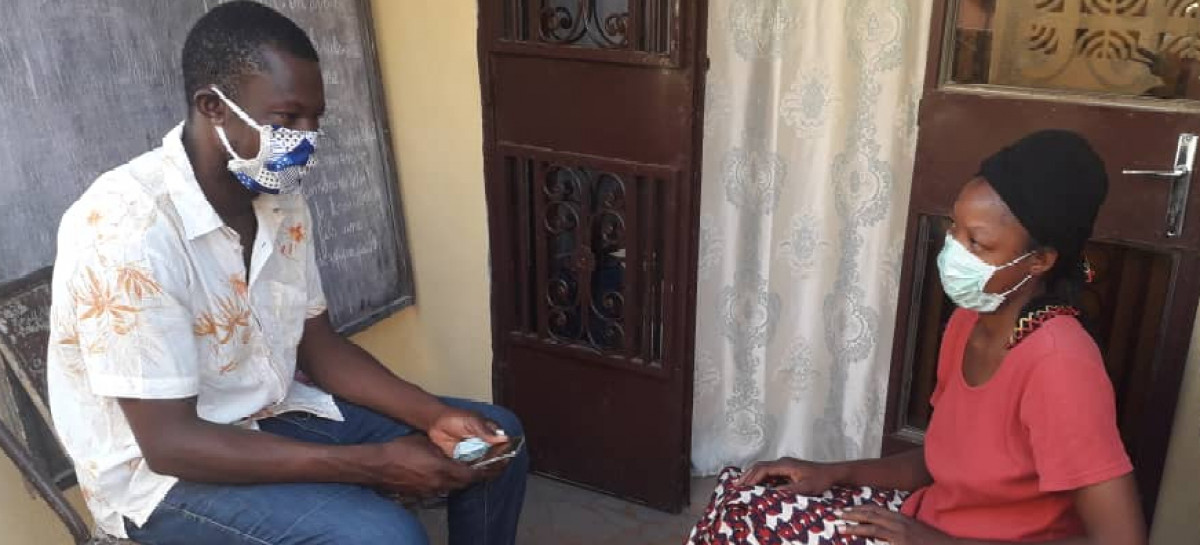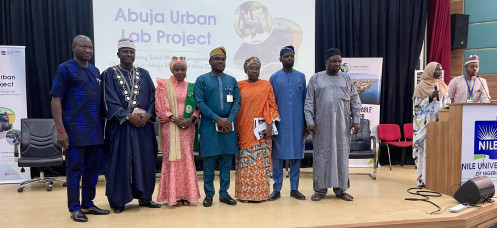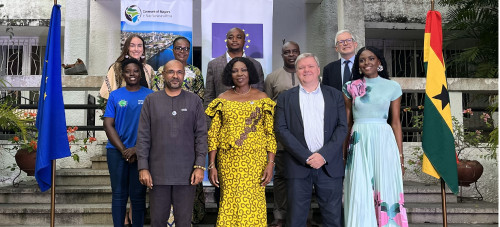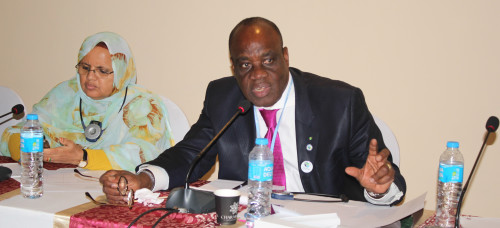Voices that matter: Bobo-Dioulasso surveys 1,000+ households to understand energy consumption and take climate action
Published: 22 Nov 2020

City Hall agents recently took to the streets of Bobo-Dioulasso to collect energy data from households and other stakeholders. Together with information from participatory workshops with city representatives, this data will enable Bobo-Dioulasso to mobilise in the fight against climate change.
As part of its commitment to the Covenant of Mayors for Sub-Saharan Africa (CoM SSA), the municipality of Bobo-Dioulasso in Burkina Faso is developing its Sustainable Energy Access and Climate Action Plan (SEACAP), which will outline concrete measures for climate adaptation, mitigation, and access to sustainable energy as well as the steps the municipality intends to take in order to respond to the impacts of climate change, reduce emissions and further access to sustainable energy. This is the crucial first step in taking climate action, but cities often need support to complete and validate their SEACAPs.
Building local capacity to develop a robust SEACAP
In order to strengthen Bobo-Dioulasso’s capacity to develop its SEACAP, GIZ is supporting with the assistance of ICLEI Africa in the framework of the CoM SSA initiative. Its local partner, the SEEPAT association based in Bobo-Dioulasso, works to protect the environment and provide access to drinking water and sanitation, including promoting improved stoves, bio-fuels and the construction of drinking water facilities.
These capacity building activities started during June and July 2020, with a series of trainings designed and delivered by ICLEI Africa, remotely for the first time, because of the COVID-19 pandemic. Various stakeholders attended: the municipal technical team in charge of the SEACAP, technical experts and SEEPAT. The series of three interactive webinars, specifically adapted to be conducted online, explored the three pillars of climate action: adaptation, mitigation and access to sustainable energy. Through the presentation of key concepts, live exercises and case studies, the participants gained theoretical and practical knowledge to better understand climate and energy issues and to gain the necessary skills to both contribute to the development of the SEACAP and to conduct workshops or trainings for data collection.
Understanding how city residents consume energy
Step one in SEACAP data collection is field surveys while meeting COVID-19 protocols. Equipped with a mask, hydroalcoholic gel and a smartphone, the 21 collection officers recruited by SEEPAT took to the stress of Bobo, going door-to-door for more than a month to complete online questionnaires. Responses were overwhelmingly positive, with more than 1,000 households of all socio-economic levels interviewed in both urban and rural areas.

Household survey

Household survey in the District n°3
The questionnaires will provide a complete and detailed overview of the sources and modes of energy consumption in the city, as well as practices related to cooking methods, waste management and transport and mobility, among others. Data on greenhouse gas emissions will also be measurable.
The City of Bobo-Dioulasso took further initiative to survey a range of complementary private sector stakeholders (including industries, transport companies and catering services). The idea of a plan focusing on improving access to sustainable and affordable energy was particularly well received by the respondents.
Yacouba Doumbia, coordinator of the survey, noted that “the majority of respondents greatly appreciated the proposal of an energy action plan for the city, as they face multiple power cuts during heat periods that hamper their activities”.

Survey with a hotel/hostel manager
In addition to the energy component, the team also collected data on climate risks in the city. In the wake of the COVID-19 pandemic the ICLEI Africa team needed to be flexible and adapt to the situation. Local partners took over the task of conducting participatory thematic workshops in the 7 districts of Bobo at the end of October.
During one week, municipal and civil society stakeholders (associations, traditional authorities and professional orders) discussed climate issues and vulnerabilities in relation to their sector of activity and the targeted population groups: development, water, housing, industry, youth, etc. Participants were selected in order to have a representative panel of the city’s population. Again, the information received, which has been prioritised and mapped, will make it possible to define objectives and identify potential actions to be planned and implemented in the city.
CoM SSA is co-financed by the European Union and the German Ministry for Economic Cooperation and Development.





